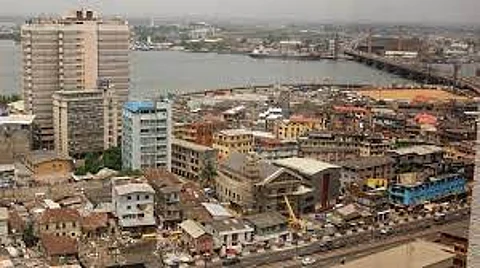

Within these states, 774 local governments play a crucial role in the country's economic development, each with its own financial profile and economic activities. This article aims to shed light on the top 10 richest local government areas in Nigeria, based on various key indicators of wealth and economic strength.
The wealth of a local government area (LGA) can be evaluated using factors such as ecological footprint, life expectancy, inequality, and overall well-being.
In the Nigerian context, the wealth of LGAs is often assessed based on the presence of valuable resources like minerals, oil and gas reserves, fertile agricultural lands, and the strategic advantages they offer for attracting investments.
Here, we delve into the top 10 wealthiest LGAs in Nigeria, providing insights into their economic prowess, key attributes, and notable activities.
1. Lagos Island:
With a GDP of $30 billion, located in Lagos state with a population of 315,000, and spanning 9.26 square kilometers, Lagos Island stands tall as the pinnacle of opulence.
Its main economic activities – finance, real estate, commerce, and tourism – transform it into a dynamic financial and commercial hub, adorned with landmarks and attractions that reflect its significance.
2. Ikeja:
Boasting a GDP of $19 billion, a population of 470,000, and covering an area of 49.92 square kilometers, Ikeja takes center stage as the vibrant capital of Lagos State.
Its economic activities, including aviation, hospitality, and retail, have solidified its reputation as a hub of modernity and commerce.
3. Abuja Municipal Area Council:
With a GDP of $12 billion and a sprawling 1476 square kilometers, Abuja Municipal Area Council holds the distinction of being Nigeria's capital. Its economic tapestry, characterized by real estate, hospitality, and government services, underscores its role as a political epicenter and residence for influential figures.
4. Eti-Osa:
Eti-Osa's GDP of $10 billion, a population of 420,000, and land area of 174.9 square kilometers position it as a significant economic force within Lagos State. Its prowess in commerce, industry, and finance, along with its legacy as the former national capital, reflects a lifestyle of luxury and robust commercial activities.
5. Uyo:
With a GDP of $8 billion, a population of 598,000, and an expanse of 362 square kilometers, Uyo emerges as a prosperous urban center and the state capital of Anambra. Its economic drivers span healthcare, tourism, agriculture, and education, creating a diverse landscape of growth anchored in transportation, sports, and industry.
6. Obio-Akpor:
A GDP of $8 billion, a population of 880,000, and a land area of 260 square kilometers establish Obio-Akpor as a powerhouse within Rivers State. Its economic endeavors encompass fisheries, aquaculture, agriculture, and the oil and natural gas industry, cementing its status as a major economic nucleus.
7. Bonny Island:
Boasting a GDP of $7 billion and an area spanning 1045 square kilometers, Bonny Island is a prominent name in River state's economic mosaic. Its focus on oil and natural gas activities, highlighted by the presence of a significant LNG plant and headquarters for oil companies, solidifies its economic significance.
8. Ibadan Northwest:
With a GDP of $6 billion, a population of 220,000, and a sprawling 3080 square kilometers, Ibadan Northwest thrives on agricultural prowess. Its key economic activities, including agriculture, commerce, and transport, are complemented by its status as the home of the International Institute of Tropical Agriculture (IITA).
9. Calabar Municipal:
Calabar Municipal's GDP of $5 billion, a population of 372,000, and an area of 142 square kilometers reflect its role as a cultural and economic hub. Its vibrant tapestry of tourism, industry, and commerce mirrors its rich heritage and well-established tourism industry.
10. Apapa:
With a GDP of $5 billion, a population of 330,000, and covering an area of 40.4 square kilometers in Lagos state, Apapa asserts its prominence through seaport operations, manufacturing, and commerce. Its strategic location in proximity to the Port of Lagos underscores its pivotal role in trade and port activities.
